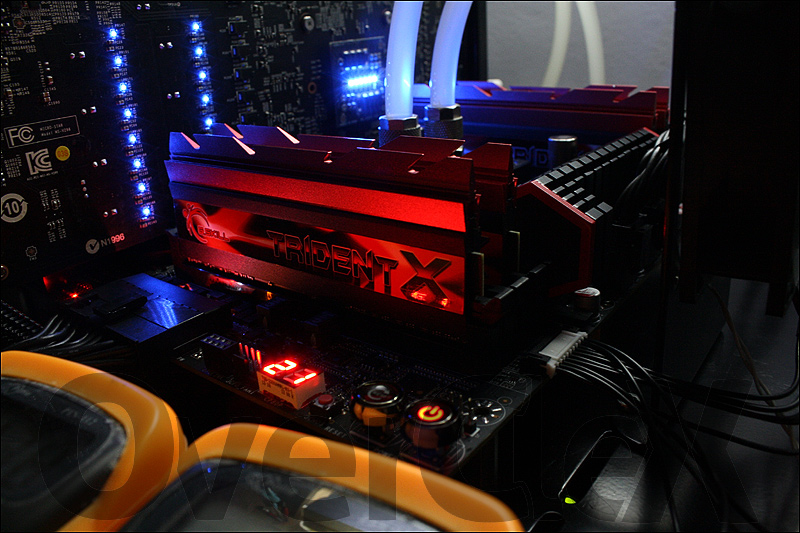
Then we transfer a set size of files from the SSD to the USB drive using DiskBench, which monitors the time taken to transfer. Using the Realtek ALC898 we see a dynamic range of over 100 dBA, although GIGABYTE squeezed more out of the codec than EVGA in terms of harmonic distortion levels.įor this benchmark, we run CrystalDiskMark to determine the ideal sequential read and write speeds for the USB port using our 240 GB OCZ Vertex3 SSD with a SATA 6 Gbps to USB 3.0 converter. We look specifically at the Dynamic Range of the audio codec used on board, as well as the Total Harmonic Distortion + Noise. The OS is tuned to 192 kHz/24-bit input and output, and the Line-In volume is adjusted until we have the best RMAA value in the mini-pretest. For this test we connect the Line Out to the Line In using a short six inch 3.5mm to 3.5mm high-quality jack, turn the OS speaker volume to 100%, and run the Rightmark default test suite at 192 kHz, 24-bit. Rightmark:AA should indicate how well the sound system is built and isolated from electrical interference (either internally or externally). The premise behind Rightmark:AA is to test the input and output of the audio system to determine noise levels, range, harmonic distortion, stereo crosstalk and so forth. Please refer to for updated details.In part due to reader requests, we are pleased to include Rightmark Audio Analyzer results in our benchmark suite. Functions will be available when using PCIe 3.0-compliant devices. This motherboard is ready to support PCIe 3.0 SPEC.
X79 DARK BOOT C BLUETOOTH
ASUS Q-LED (CPU, DRAM, VGA, Boot Device LED)Ĥ x USB 2.0 (one port can be switched to USB BIOS Flashback)ġ x ASUS Wi-Fi GO! module (Wi-Fi 802.11 a/b/g/n/ac and Bluetooth v4.0/3.0+HS)ġ x USB 3.0 connector(s) support(s) additional 2 USB 3.0 port(s) (19-pin)Ĥ x USB 2.0 connector(s) support(s) additional 8 USB 2.0 port(s)ġ x CPU OPT Fan connector(s) (1 x 4 -pin)Ĥ x Chassis Fan connector(s) (4 x 4 -pin)ġ x Front panel audio connector(s) (AAFP)ġ x ASUS 2T2R dual band Wi-Fi moving antennas (Wi-Fi 802.11a/b/g/n/ac compliant)Ħ4 Mb Flash ROM, UEFI AMI BIOS, PnP, DMI2.7, WfM2.0, SM BIOS 2.7, ACPI 5.0, Multi-language BIOS,ĪSUS EZ Flash 2, ASUS CrashFree BIOS 3, My Favorites, Quick Note, Last Modified log, F12 PrintScreen, F3 Shortcut functions, and ASUS DRAM SPD (Serial Presence Detect) memory information Stylish Fanless Design Heat-pipe solution ASUS UEFI BIOS EZ Mode featuring friendly graphics user interface
X79 DARK BOOT C PORTABLE
Wi-Fi GO! & NFC Remote for portable Smartphone/Tablet, supporting iOS & Android systems Wi-Fi Engine for network sharing and connection: Client Mode, AP Mode Wi-Fi GO! Function: Cloud GO!, Media Streaming Hub, Smart Sensor Control, Remote Desktop, Remote Keyboard & Mouse, File Transfer, Capture & Send Industry leading Digital 2 + 2 Phase DRAM Power Design Industry leading Digital 8 + 2 Phase CPU Power Design ASUS Stainless Steel Back I/O - 3x more durable corrosion-resistant coating ASUS High-Quality 5K-Hour Solid Capacitors - 2.5x long lifespan with excellent durability ASUS ESD Guards - Enhanced ESD protection ASUS DIGI+ VRM - 8 + 2 Phase digital power design The tuning key perfectly consolidates ASUS-exclusive DIGI+ Power Control, TPU, EPU, and Fan Xpert 2 optimize the digital power setting, system performance, power saving and whole system cooling configuration Optical S/PDIF out port(s) at back panelġ2 x USB 2.0/1.1 port(s) (4 at back panel, black, 8 at mid-board)Ĩ x USB 3.0/2.0 port(s) (6 at back panel, blue, 2 at mid-board)ĪSUS Dual Intelligent Processors 4 with 4-Way Optimization : Absolute Pitch 192kHz/ 24-bit True BD Lossless Sound

Supports : Jack-detection, Multi-streaming, Front Panel Jack-retasking Realtek® ALC1150 8-Channel High Definition Audio CODEC Intel® LAN- Dual interconnect between the Integrated LAN controller and Physical Layer (PHY) Realtek® 8111GR, 1 x Gigabit LAN Controller(s)ĭual Gigabit LAN controllers- 802.3az Energy Efficient Ethernet (EEE) appliance Intel® 82579V, 1 x Gigabit LAN Controller(s) Supports AMD Quad-GPU CrossFireX™ Technologyģ x PCIe 3.0/2.0 x16 (dual x16 or x16/x8/x8) *1 * Due to CPU behavior, DDR3 2200/2000/1800 MHz memory module will run at DDR3 2133/1866/1600 MHz frequency as default. * Refer to for the Memory QVL (Qualified Vendors Lists). Supports Intel® Extreme Memory Profile (XMP) Supports Intel® Turbo Boost Technology 2.0Ĩ x DIMM, Max. Intel® Socket 2011 Core™ i7 Extreme Edition/Core™ i7 Processors


 0 kommentar(er)
0 kommentar(er)
